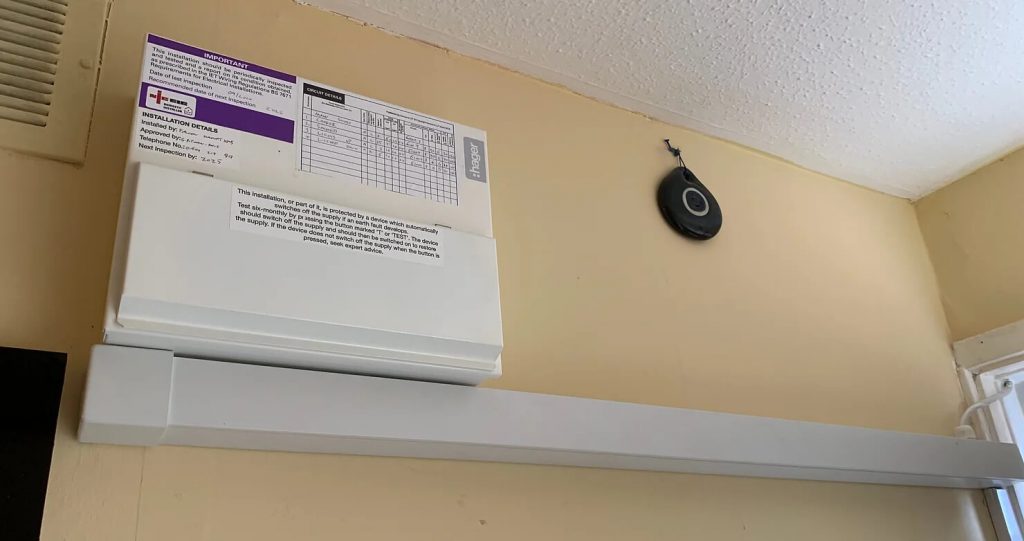Published on 19th January 2022
So you are considering a consumer unit upgrade but don’t know where to start? There are a few different options in the market place for your new unit, from basic protection to maximum practicality, to help out we have listed a few options, with a short description below:
These provide the minimum level of protection for your property, but are these best option if you have a tilt budget to stick to. These work by providing 2 RCD modules (RCDs are what trip out to prevent a fire or an electric shock), with 1 of them each protecting 50% of your properties electrics, so if you have a problem you only loose half of your house electrics. These are good option, but for older electrical systems they can be an inconvenience at times. This is due to the fact that older electrics are prone to trip out more often, so you could have a continuous problem of 50% of your house turning off, as well as they fact that it is rumoured that these may be getting phased out of the industry with the next few years in favour of RCBO units. Prices for dual RCDs start at £400-£600 (this includes materials and labour) depending on the brand being fitted and your location.
These provide the maximum level of protection for your property, as well as being the most practical. The difference between RCBOs and standard duel RCD, is that with RCBO boards each individual circuit has its own individual RCD built into it, with the end result being that it is less likely to trip out from overload, and if it did trip out then you only loose one circuit and not half of your house. Most prices for RCBOs range from £80-£320 EXTRA than a standard duel RCD consumer unit, but it is well worth it, especially as it is rumoured that RCBOs may become mandatory within the next few years as duel RCDs are phased out of the industry.
Surge protection devices. These are being pushed more and more by the regulations, and is likely that in the next couple of years they shall become mandatory. The purpose of these devices is to protect your consumer unit from over-voltage entering your property, which can occur from faults or lightening strikes somewhere on the national power lines (sounds like sci-fi but it happens more often than you think). If this occurs, the SPD shall divert the extra voltage and trip out. These are recommended if you have any voltage sensitive equipment in your property such as TVs, LEDs, Wi-Fi routers, computers etc., and prices range from £40-£130 depending on the brand you choose.
These are basically RCDs with paranoia. They use a more advanced method of registering if a potential fault shall occur, resulting in a faster tripping out feature to prevent a fire or electric shock. The regulations recommend having these fitted, but at the moment they are not mandatory, which is a relief as they cost about £120 extra than an RCD, And if you wanted an RCBO option that would mean an extra £120 PER CIRCUIT extra.
However, having these fitted is very handy if anything extremely sensitive is on that circuit such as an electric vehicle charger, expensive computers or a data bank. As it would be more expensive if these items got damaged then fitting an AFDD.


Falcon Innovations Limited | Company Registration: 11159922
SEO and Website Design by Loop Digital